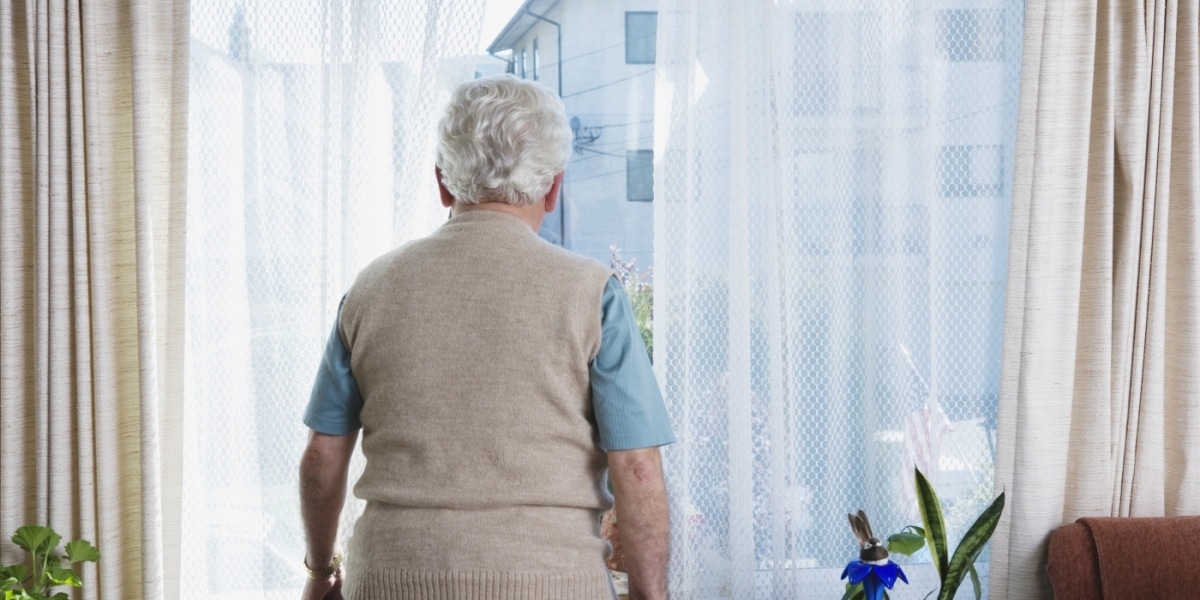
“Dementia” is a term that describes a group of symptoms that involve a loss of cognitive functioning. This includes thinking, remembering, and reasoning. Alzheimer’s Disease is the largest cause of dementia, and vascular dementia—which happens after a stroke—is the second most common. Dementia is overwhelming—not only from those suffering from it, but also for families and caregivers.
If you’re a family member who is also doubling as a caregiver, know that you aren’t alone. In 2015 there were over 43.5 million caregivers in the U.S. providing unpaid care to a child or an adult. Providing memory care comes with its own unique challenges. Below we’ll cover some of the early signs of dementia, and what you can do to create a safe environment for your loved one with dementia.
Early Signs & Symptoms
The symptoms of dementia can vary, but below we’ve listed the common symptoms that indicate your loved one may have dementia. These often start in subtle ways, but will worsen over time.
- Short-term memory loss
Your loved one may talk about events that happened years ago as clearly as if they happened yesterday, but have trouble remembering more recent events, or even what they did or ate earlier in the day.
- Trouble finding the right words
If you notice a loved one calling things by the wrong name, not knowing the word for something, or repeating themselves in conversation it could be an early sign of dementia.
- Changes in mood
While those experiencing dementia may not notice this symptom immediately in themselves, friends and family members are more likely to detect mood changes that aren’t normal. Your loved one may seem more sensitive, fearful, anxious, confused or depressed. These moods will become even more heightened if their normal routine is disrupted, or they feel outside of their comfort zone.
- Decreased interest in hobbies or social activities
If a favorite TV show suddenly becomes abandoned, or a lifelong love of reading falls to the wayside, pay attention. If a loved one has dementia, they may become disinterested in hobbies or social activities they used to enjoy.
- Familiar tasks become difficult
If your loved one starts having difficulty with tasks that used to be routine, like balancing a checkbook, driving to familiar locations, or using appliances they’ve had no trouble with in the past, it could be an early sign of dementia.
Home Safety Tips
If your loved one has been exhibiting the signs above, and has been diagnosed with dementia by a doctor, it’s important that they receive the specialized care they need. If you decide to provide home care, you’ll need to create a safe environment. According to alz.org, 6 in 10 people with dementia will wander. This can pose plenty of safety hazards, and requires diligent care. These safety measures can help make your home safe:
1. Install locks that are out of sight
Placing deadbolts higher or lower than usual so they aren’t easily accessed can help secure exterior doors so your loved one won’t wander out of the house. However, when it comes to interior doors to bedrooms and bathrooms, you’ll want to do the opposite and remove locks completely so your loved one can’t get locked inside.
2. Keep your home well-lit
Night time wandering can be especially dangerous if your home isn’t safely lit. Use night lights in hallways, bedrooms, and bathrooms. Adding extra lights to stairways and doorways is also a good idea.
3. Remove any tripping hazards
Make sure your floors are free of any clutter that could cause your loved one to trip and fall. Loose cords, magazine racks, and even coffee tables can create tripping hazards.
4. Place medications in a secure location & remove hazards
Keep medicines in a locked drawer or cabinet for your loved one’s safety. The same goes for potential hazards like cleaning supplies. Any guns or potential weapons should be disabled and removed completely from the home for added safety.
5. Assess access to means of transportation from the home
If your loved one is prone to wandering, they may also try and take their wandering tendencies from the home to the road. Depending on the stage of dementia, this may mean keeping keys to vehicles out of reach, or safely blocking access to the garage area altogether.
At-home care giving can be difficult, and memory care can add unique challenges to an already stressful situation—especially as dementia progresses. If you need extra support, Loretto can help! We’re one of the largest providers of Alzheimer’s and dementia care in the region, offering the first residential program in Central New York created especially for affected individuals at our Heritage Community. For more information about our services and facilities, visit www.lorettocny.org or feel free to contact us!
